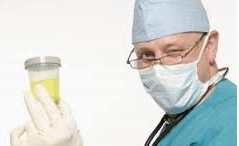
All the way up in British Columbia, Dr. Louise B. Andrew could feel the pain of an Akron nurse who was being financially gouged by a Summa Health rehabilitation program. The internationally known physician/attorney read my column about Brian (his last name was withheld), who was participating in a program for medical professionals who had run into trouble with alcohol and/or drugs and were trying to regain their licenses. Brian was among eight fellow nurses, physicians and pharmacists who were paying $457 each for a 60-minute group therapy session every week. Private half-hour sessions were billed at $247, and each urine drug screen was $150. But Dr. Andrew says that, in the overall scheme of medical professionals trying to work their way back into action, Brian’s financial pain was the equivalent of a boo-boo.
“While the price charged to your Brian was excessive for outpatient group therapy and urine testing, it pales in comparison to what physicians are typically charged for ‘specialized’ ‘rehab services,’ ” Andrew wrote in a lengthy email.
“Physicians are almost always sentenced to 90 days inpatient stay in one of a handful of ‘preferred’ facilities … [a designation based] primarily on the willingness of the facility to tailor the diagnosis according to the recommendation of the PHP [Physician Health Program].”
“The ‘specialized’ ‘services’ provided at these facilities are AA meetings run by high-school-educated recovering addicts. The costs can typically be in the range of $1,000 to $1,500 per DAY. They’re not covered by insurance (avoids the possibility of insurance fraud) and typically must be paid in cash up front.
“Physicians are told that their license is worth re-mortgaging their homes, sacrificing their children’s educational or their own retirement funds. If the physician refuses, he or she is reported to the medical board as being ‘in denial’ — even when there is little or no evidence of substance use or abuse — and the typical result of such reporting is licensure loss.
“I know this from consulting with numerous physicians across the country who have been subjected to this scheme, resulting in bankruptcy, homelessness and, in some cases, suicide.”
In addition to writing and lecturing, she uses her law degree to assist physicians who need legal help.
Andrew runs a number of websites (among them: http://www.mdmentor.com and http://www.physiciansuicide.com.) and is highly involved in suicide prevention for doctors — a bigger problem than you might guess.
Oddly enough, Andrew was originally a big fan of PHPs, saying they were a safe alternative to suffering in silence. But as a recent article in Clinical Psychiatry News pointed out, after serving as the liaison from the American College of Emergency Physicians (ACEP) to the Federation of State Medical Boards from 2006 to 2014, she had a major change of heart.
Today, she is worried that PHPs “may have taken on the role of what is more akin to ‘diagnosing for dollars.’ ”
In a column for Emergency Physician’s Monthly, she wrote, “My convictions have changed dramatically. Horror stories that colleagues related to me while I chaired ACEP’s Personal and Professional Well-Being Committee cannot all be isolated events.
“For example, physicians who self-referred to the PHP for management of stress and depression were reportedly railroaded into incredibly expensive and inconvenient out-of-state drug and alcohol treatment programs, even when there was no coexisting drug or alcohol problem.”
(If you want to know more about this, Andrew goes into great detail at http://bit.ly/PHP_MLB)
To be sure, nobody wants to be treated by a doctor who is suffering from drug and/or alcohol problems.
But if we really believe addictions are diseases, rather than criminal activity, and if we believe that rehabilitation is possible, these physicians ought to have a path back that has a lot less to do with lining pockets and a lot more to do with healing.
Bob Dyer can be reached at 330-996-3580 or bdyer@thebeaconjournal.com. He also is on Facebook at http://www.facebook.com/bob.dyer.31
Source: Bob Dyer: Fallen physicians are sometimes bullied





Professionals can be forced into these extortion schemes without a substance abuse disorder, also. It’s abhorrent.
LikeLike
Discouraging – years later, I am only starting to realize how completely happiness was destroyed by a group of self-appointed experts who couldn’t cure their own addiction. The idea that one has no privacy rights as a licensed professional is something that should be a black box warning on every medical school application. Too much candy for a dime, IMO.
LikeLiked by 1 person
Boy oh boy could I ever comment here but – Mamma said if I don’t have something nice go sag then…don’t…
LikeLike